- Home
- Carolyn Wells
The Mark of Cain
The Mark of Cain Read online
Produced by Stephen Hutcheson, Mardi Desjardins and theOnline Distributed Proofreading Team at https://www.pgdp.net(This book was produced from scanned images of publicdomain material from the Google Print project.)
"SEND AWAY THAT BOY! ORDER HIM OUT, AVICE!" _Page 254_]
THE MARK OF CAIN
By CAROLYN WELLS _Author of "A Chain of Evidence," "The Gold Bag," "The White Alley," etc._
_WITH A FRONTISPIECE IN COLOR BY_ GAYLE HOSKINS
PHILADELPHIA AND LONDON J. B. LIPPINCOTT COMPANY 1917
COPYRIGHT, 1917, BY J. B. LIPPINCOTT COMPANY PUBLISHED JANUARY, 1917
PRINTED BY J. B. LIPPINCOTT COMPANY AT THE WASHINGTON SQUARE PRESS PHILADELPHIA, U. S. A.
CONTENTS
CHAPTER PAGE I. Through the Green Cord 7 II. Who Could Have Done It? 21 III. Pinckney, the Reporter 33 IV. The Inquest Begins 45 V. The Swede 57 VI. Out of the West 69 VII. Stephanotis 81 VIII. The Milk Bottle 93 IX. A Clause in the Will 105 X. Stryker's Handkerchief 117 XI. Duane, the Detective 127 XII. A New Theory 139 XIII. Fibsy Fibs 153 XIV. Two Suitors 165 XV. The Trap that was Set 175 XVI. A Promise 187 XVII. Madame Isis 198 XVIII. All for Love 210 XIX. Two at Luncheon 223 XX. Fleming Stone 233 XXI. Stone's Questions 245 XXII. Judge Hoyt's Plan 259 XXIII. In Kito's Care 269 XXIV. Escape 282 XXV. The Whole Truth 294
THE MARK OF CAIN
CHAPTER I THROUGH THE GREEN CORD
Judge Hoyt's strong, keen face took on a kindlier aspect and his curt"Hello!" was followed by gentler tones, as he heard the voice of the girlhe loved, over the telephone.
"What is it, Avice?" he said, for her speech showed anxiety.
"Uncle Rowly,--he hasn't come home yet."
"He hasn't? Well, I hope he'll turn up soon. I want to see him. I wascoming up this evening."
"Come now," said Avice; "come now, and dine here. I am so anxious aboutuncle."
"Why, Avice, don't worry. He is all right, of course."
"No he isn't. I feel a presentiment something has happened to him. Henever was so late as this before, unless we knew where he was. Do comeright up, won't you, Judge?"
"Certainly I will; I'm very glad to. But I'm sure your fears aregroundless. What about Mrs. Black? Is she alarmed?"
"No, Eleanor laughs at me."
"Then I think you needn't disturb yourself. Surely she----"
"Yes, I know what you're going to say, but she isn't a bit fonder ofUncle Rowly than I am. Good-by."
Avice hung up the receiver with a little snap. She was willing that Mrs.Black should marry her uncle, but she did hate to be relegated to secondplace in the household. Already the handsome widow was asserting hersupremacy, and while Avice acknowledged the justice of it, it hurt herpride a little.
"I've asked Judge Hoyt to dinner," she said, as she returned to her postat the window.
Mrs. Black glanced up from the evening paper she was reading and murmuredan indistinct acquiescence.
It was late June, yet the city home of the Trowbridges was still occupiedby the family. As Avice often said, the big town house was cooler thanmost summer resorts, with their small rooms and lack of shade. Here, thelinen-swathed furniture, the white-draped chandeliers and pictures, therugless floors, all contributed to an effect of coolness and comfort.
Avice, herself, in her pretty white gown, fluttered from one window toanother, looking out for her uncle.
"Mrs. Black, why do you suppose Uncle Rowly doesn't come? He said hewould be home early, and it's after six o'clock now!"
"I don't know Avice, I'm sure. Do be quiet! You fluster around so, youmake me nervous."
"I'm nervous myself, Eleanor. I'm afraid something has happened to uncle.Do you suppose he has had a stroke, or anything?"
"Nonsense, child, of course, not. He has been detained at the office forsomething."
"No he hasn't; I telephoned there and the office is closed."
"Then he has gone somewhere else."
"But he said he would be home by five."
"Well, he isn't. Now, don't worry; that can do no good."
But Avice did worry. She continued to flit about, dividing her attentionbetween the clock and the window.
The girl had been an orphan from childhood, and Rowland Trowbridge hadbeen almost as a father to her. Avice loved him and watched over him as adaughter; at least, that had been the case until lately. A few weekssince, Mr. Trowbridge had succumbed to the rather florid charms of Mrs.Black, his housekeeper, and told Avice he would marry her in a month.
Though greatly surprised and not greatly pleased, Avice had accepted thesituation and treated the housekeeper with the same pleasant courtesy shehad always shown her. The two "got along" as the phrase is, though theirnatures were not in many ways congenial.
Avice remained at the window till she saw at last Leslie Hoyt's tall formapproaching. She ran to open the door herself.
"Oh, Judge Hoyt," she cried, "Uncle hasn't come yet! There must besomething wrong! What can we do?"
"I don't know, Avice, dear. Tell me all about it."
"There's nothing to tell, only that uncle said he would be home at five,and it's almost seven and he isn't here! Such a thing never happenedbefore."
"Good evening, Judge Hoyt," said Mrs. Black's cool, measured voice asthey entered the drawing-room. "I think our Avice is unnecessarilyalarmed. I'm sure Mr. Trowbridge can take care of himself."
"That is doubtless true," and for the first time a note of anxiety creptinto Hoyt's tone; "but as Avice says, it is most unusual."
Mrs. Black smiled indifferently and returned to her paper.
Leslie Hoyt was so frequent a visitor at the house, that he was nevertreated formally. He seated himself in an easy chair, and took acigarette case from his pocket, while Avice continued her nervousjourneys between the clock and the window.
"We won't wait dinner after seven," said Mrs. Black, in a voice thatmight mean either command or suggestion, as her hearers preferred.
"You may have it served now, if you like," returned Avice, "but I shan'tgo to the table until uncle comes."
Now, it had been nearly two hours before this that a telephone call hadbeen received at police headquarters.
"Is dees pol
izia stazione?" Inspector Collins had heard, as he held thereceiver to his ear.
Through the green cord the broken voice spoke in a halting way, as ifuncertain how to word the message.
"Yes; who is speaking?" Collins replied.
"Meester Rowlan' Trowbridga,--he is dead-a."
"I can't hear you! What's all that racket where you are?"
"My bambini--my childaren. They have-a da whoopa-cough."
"It's more than children making all that noise! Who are you?"
"Not matter. I say, Meester Trowbridga--he dead-a."
"Rowland Trowbridge dead! Where--who are you?"
"You find-a heem. Bringa da bod' home."
"Where is he?"
"Van Cortaland' Park. By da gollif play. You go finda da man--Bringa dabod' home."
"See here, you tell me who you are!"
But a sudden click told that the message was finished, and after a fewimpatient hellos, Collins hung up the receiver.
"Rubbish!" he said to himself; "some Dago woman trying to be funny. But aqueer thing,--Rowland Trowbridge! Phew, if it should be! I'll just callup his house."
Collins called up the Trowbridge house on Fifth Avenue. Not to alarm anyone he merely inquired if Mr. Trowbridge was at home. The answer was no,and, glancing at the clock, Collins called up Mr. Trowbridge's office inthe Equitable Building. There was no response, and as it was fiveo'clock, he assumed the office was already closed.
"I've got a hunch there's something in it," he mused, and acting on hisconviction, he called up the Van Cortlandt Park Precinct Station, andtold the story.
Captain Pearson, who took the message, shrugged his shoulders at itsdubious authority, but he assembled several detectives and policemen, andset off with them in a patrol car for the golf links.
Up to Van Cortlandt Park they went, past the gay-coated, gay-voiced golfplayers, on along the broad road to the woods beyond.
"By golly! There he is!" cried one of the detectives, whose expectanteyes noted a dark heap on the ground, well back among the trees.
Jumping from the car and running across the uneven, root-roughenedground, they found the dead body of Rowland Trowbridge.
Dressed in his business clothes, his hat on the ground near by, the bodywas contorted, the hands clenched, and the face showed an expression ofrage, that betokened a violent death.
"He put up a fight," observed Pearson. "Poor man, he had no chance.Somebody stabbed him."
A gash in the blood-stained waistcoat proved that the aim at the victim'sheart had been all too sure, and his frantic, convulsive struggles of noavail.
Eagerly the men looked for clues. But they found nothing save the deadman and his own belongings. The scene of the tragedy was not very farfrom the road, but it was well screened by the thick summer foliage, andthe rocks and high tree roots hid the body on the ground from the sightof passers-by.
"Footprints?" said Lieutenant Pearson, musingly.
"Nothing doing," returned Detective Groot. "Some few depressions here andthere--of course, made by human feet--but none clear enough to be calleda footprint."
"And the ground is too stony and grassy to show them. Look well, though,boys. No broken cuff-links, or dropped gloves? It's a canny murderer whodoesn't leave a shred of incriminating evidence."
"It's a fool murderer who does," returned Groot. "And this affair is notthe work of a fool. Probably they've been spotting Mr. Trowbridge formonths. These millionaires are fair game for the Dago slayers."
"Why Dago?"
"Didn't an Italian woman turn in the call? How could she know of itunless some of her own people did it?"
"But there seems to be no robbery. Here's his watch and scarfpin allright."
"And his roll?"
"Yes," said Pearson, after an investigation of the dead man's pockets."Bills and change. Nothing taken, apparently."
"Valuable papers, maybe."
"Not a Dago, then. Your theories don't hang together. Well, this willcreate some stir in the Street! Biggest sensation in years. RowlandTrowbridge! Phew! Won't the papers go crazy!"
"What family has he? Wife?"
"No, nor child. Only a niece, but she's the apple of his eye. We'll getCollins to telephone to the house. It's an awful business."
The business was awful, and its awful details took so much time that itwas seven o'clock before Inspector Collins called up the Trowbridge home.
"Maybe that's uncle now!" cried Avice, and springing from her chair shewent to the ringing telephone.
"Hello--yes--no,--oh, _tell_ me!--I am Miss Trowbridge,--no, hisniece,--please come here, Judge Hoyt!"
Leslie Hoyt took the receiver from the hand of the agitated girl, andreceived this message from the police station.
"Yes, sir; I couldn't tell the young lady, sir. Do you belong to thefamily? Well, then, there's no use beatin' round the bush. Mr. Trowbridgeis dead. We found his body in Van Cortlandt Park woods. Will you comehere to identify it?"
"Wait a minute! Let me think!" and Hoyt strove to control himself."Avice, you were right. Something has happened."
"Oh, Uncle Rowly!"
"Yes,--" and Hoyt's voice faltered, "he has been--has been hurt.They--they have found him----"
"I know," said Avice, standing perfectly still, while her face wentwhite. "You needn't tell me. I know. He is dead."
Hoyt looked at her dumbly, not contradicting. He had loved the girl foryears, but though she liked him, she would give him no promise, and hestill hoped and waited. He turned back to answer the insistent telephone."Yes; of course, there is nothing else to do. Tell the coroner. I will gothere at once. Are you sure of what you tell me?"
"There can be no doubt," he said gently, as he finally left thetelephone. "There are letters in his pockets, and some of the policemenknow him. Avice, dear!"
But Avice had flung herself on a couch, her face buried in the pillows,and was sobbing her heart out.
"Let her cry," said Mrs. Black, softly, as she laid her long white handgently upon the bowed head; "it will do her good. Tell me all, JudgeHoyt. I am the one in charge now."
The woman's handsome face showed dignity and authority rather than grief,but Leslie Hoyt was merely the dead man's lawyer, and had no right tointrude personal comment or sympathy. He had long been a close friend ofRowland Trowbridge and his niece, but with the housekeeper hisacquaintance was but formal.
"I know very little, Mrs. Black," he said, his eyes wandering to theconvulsed figure on the couch. "The inspector merely told me that Mr.Trowbridge has been killed and that some one must go to the policestation to represent the family. As his lawyer, it is appropriate that Ishould go, and, indeed, it seems to me there is no one else who could--"his voice broke as he looked again at Avice, now sitting up and staring,wide-eyed at him.
"Yes, do go, Judge Hoyt," she cried; "you are the one--who else could?Not I, surely,--you don't want me to go, do you?"
"No, Avice, no, dear," said Mrs. Black, soothingly. "Nobody thought ofyour going. Judge Hoyt has kindly consented----"
"I will stop for Doctor Fulton, I think, and ask him to go with me," andLeslie Hoyt took up his hat. "You had better go to your room, Avice. Itmay be a long time before my return."
"I will look after her," and Mrs. Black nodded her head. "I will attendto everything."
She accompanied Hoyt to the door, saying in low tones, "When you comeback, will you bring the the--will you bring Mr. Trowbridge with you?"
"I can't be sure. There are so many formalities to be looked after. Tryto keep Avice as quiet as possible. It will be a trying scene at best,when we return."
"I will do all I can for her. How fortunate that you are here, JudgeHoyt."
"Indeed, yes. Had I not been, the girl might have insisted on going onthis awful errand."
The judge walked the few blocks to Doctor Fulton's office, and luckilyfinding him in, they both went at once in the doctor's car to the sceneof the tragedy.
"Let me give you some quieting draught, Avice dear," s
aid Mrs. Black, asshe returned to the girl, "and then I'm going to send you to bed."
"Indeed, you'll do nothing of the kind. I have quite as much right hereas you have."
"Of course you have," and the lady's voice was as straightforward as herwords. "I only want to spare you the shock."
"I don't want to be spared, I want to know all about everything that goeson. I won't be treated as a child or an imbecile! I want to help."
"But, my dear, there is nothing to do."
"There will be. If Uncle Rowly has been killed, some one has done thedeed, and I shall never rest until I find out who did it, and bring himto justice! How can you sit there so calmly? Don't you care? You, whopretended to love him!"
"There, there, Avice, don't get so excited. I know how you must feel,but----"
"Don't talk to me, Eleanor! You drive me crazy!"
Offended, and a little frightened at the girl's vehemence, the olderwoman ceased all attempts at conversation, and busied herself about therooms, with those futile, nervous little motions that most women indulgein under stress of great excitement.
"I think, Avice, dear, you ought to try to eat some dinner," shesuggested. "Shall we go out together?"
But Avice only looked at her in dumb reproach, and closed her eyes as ifto dismiss the subject.
Mrs. Black went into the dining-room alone.
"There has been an accident, Stryker," she said to the butler, thinkingit unwise to say more at the present. "They will bring Mr. Trowbridgehome after a time. Meantime, say nothing to the other servants, and giveme my dinner, for I feel I must try to eat something."
Mrs. Black's face was inscrutable as she sat at the well-appointed table.She ate a little of the dishes Stryker brought, but her thoughts wereevidently far away. She frowned now and then, and once she smiled, butmostly she seemed in a brown study, and as if she had weighty affairs onher mind. Not a tear did she shed, nor did she look bowed with sorrow;indeed, her fine, well-poised head held itself a little higher than usualas she gave low-voiced orders to the butler now and then.
She returned to the drawing-room and the weary hours dragged by.Occasionally the two women spoke to each other, but only of trivialities,or necessary details of arrangement. No word of sympathy or common griefpassed between them.
At last they heard steps outside, and they knew Rowland Trowbridge wasbeing brought into his house for the last time.
Judge Hoyt came in first and kept the two women in the drawing-room whilethe bearers took their tragic burden up to Mr. Trowbridge's own room.Shortly afterward Doctor Fulton came down.
"Mr. Trowbridge was murdered," he said briefly. "Stabbed with a dagger.He has been dead five or six hours now. Perhaps more."
"Who did it?" cried Avice, looking more like an avenging angel than agrief-stricken girl.
"They have no idea. The coroner must try to determine that."
"The coroner!" exclaimed Mrs. Black in horror.
Avice turned on her. "Yes, coroner," she said; "how else can we find outwho killed Uncle Rowly, and punish him,--and kill _him_!"
Every one stared at Avice. The policeman in the hall looked in at thedoorway, as her ringing tones reached him. The girl was greatly excitedand her eyes blazed like stars. But she stood quietly, and spoke withrepressed force.
"What is the first thing to do?" she said, turning to Doctor Fulton, andthen glancing past him to the policeman in the doorway.
"Wait, Avice, wait," put in Leslie Hoyt; "let us consider a moment."
"There is nothing to be considered, Leslie. Uncle is dead. We mustdiscover who killed him. We must get the best detectives, and we mustnever rest until we have brought the villain to justice."
"Of course, of course, Avice," said Mrs. Black, soothingly, "but we can'thurry so, child."
"We _must_ hurry! It is only by beginning at once that we can find cluesand things. Delay means opportunity for the criminal to escape!"
Hoyt and Doctor Fulton looked at the girl in amazement. Where had shelearned these terms that fell so readily from her tongue?
"She is right," said Judge Hoyt, sadly. "There must be no unnecessarydelay in these matters. But the law moves slowly, at best. Everythingpossible will be done, Avice; you may rest assured of that. The coroneris upstairs now, and when he comes down he will want to talk with you.You won't object?"
"Indeed, no. I want to see him. Why, only think, I knownothing,--_nothing_, as yet, as to how Uncle Rowly met his death!"

 The Deep Lake Mystery
The Deep Lake Mystery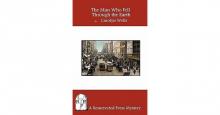 The Man Who Fell Through the Earth
The Man Who Fell Through the Earth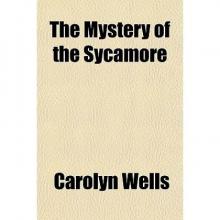 The Mystery of the Sycamore
The Mystery of the Sycamore The Mystery Girl
The Mystery Girl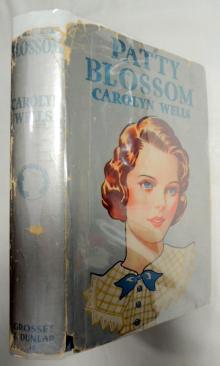 Patty Blossom
Patty Blossom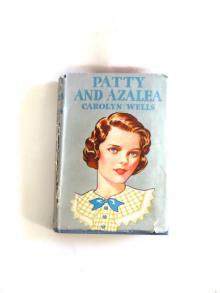 Patty and Azalea
Patty and Azalea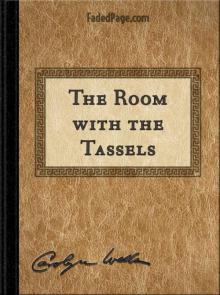 The Room with the Tassels
The Room with the Tassels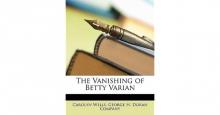 The Vanishing of Betty Varian
The Vanishing of Betty Varian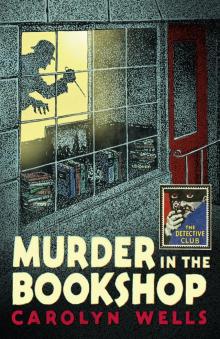 Murder in the Bookshop
Murder in the Bookshop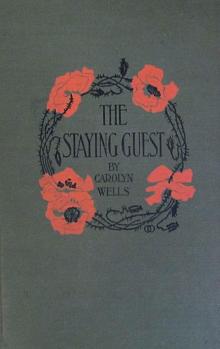 The Staying Guest
The Staying Guest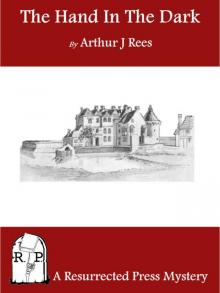 The Curved Blades
The Curved Blades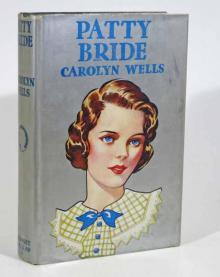 Patty—Bride
Patty—Bride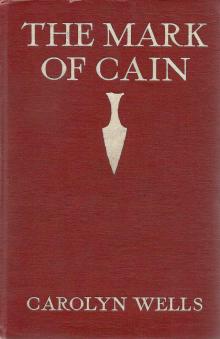 The Mark of Cain
The Mark of Cain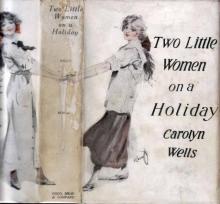 Two Little Women on a Holiday
Two Little Women on a Holiday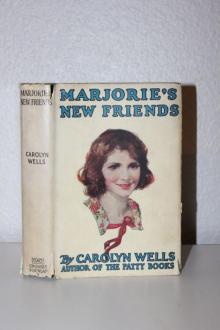 Marjorie's New Friend
Marjorie's New Friend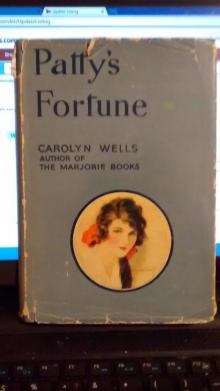 Patty's Fortune
Patty's Fortune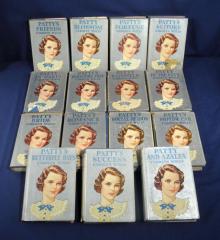 Patty's Social Season
Patty's Social Season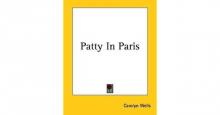 Patty in Paris
Patty in Paris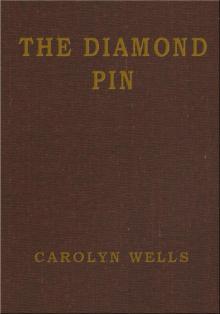 The Diamond Pin
The Diamond Pin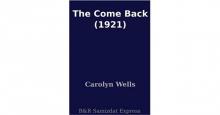 The Come Back
The Come Back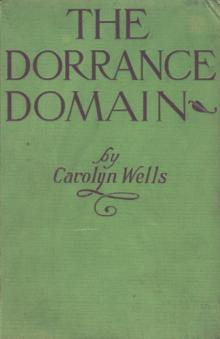 The Dorrance Domain
The Dorrance Domain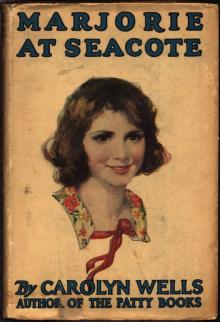 Marjorie at Seacote
Marjorie at Seacote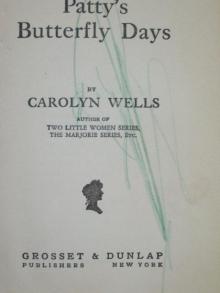 Patty's Butterfly Days
Patty's Butterfly Days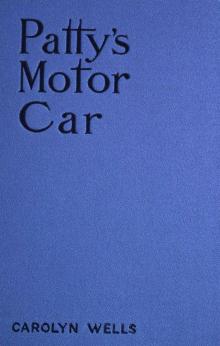 Patty's Motor Car
Patty's Motor Car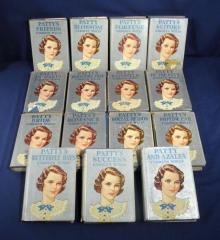 Patty's Success
Patty's Success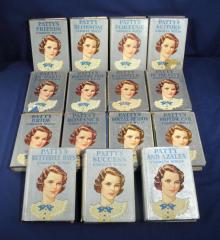 Patty's Suitors
Patty's Suitors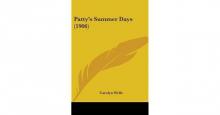 Patty's Summer Days
Patty's Summer Days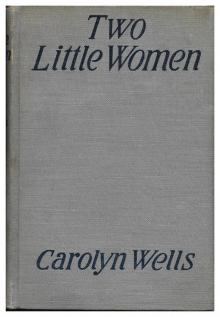 Two Little Women
Two Little Women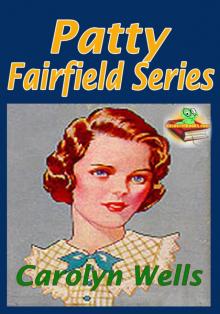 Patty Fairfield
Patty Fairfield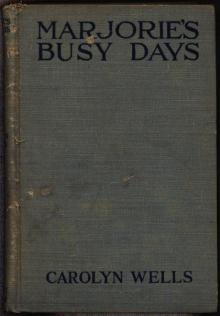 Marjorie's Busy Days
Marjorie's Busy Days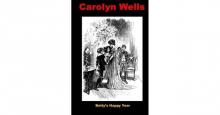 Betty's Happy Year
Betty's Happy Year In the Onyx Lobby
In the Onyx Lobby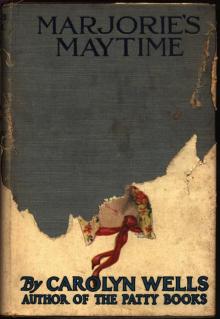 Marjorie's Maytime
Marjorie's Maytime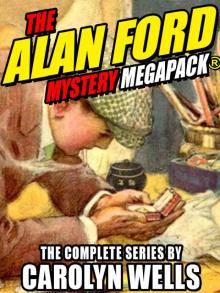 The Alan Ford Mystery MEGAPACK®
The Alan Ford Mystery MEGAPACK®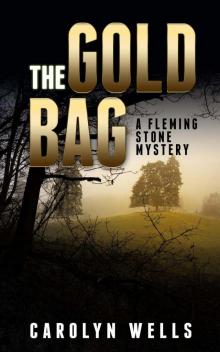 The Gold Bag
The Gold Bag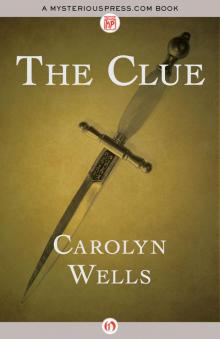 The Clue
The Clue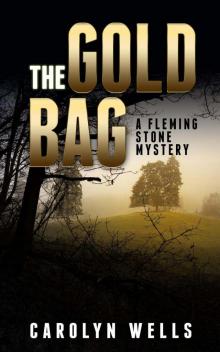 The Gold Bag : A Fleming Stone Mystery
The Gold Bag : A Fleming Stone Mystery